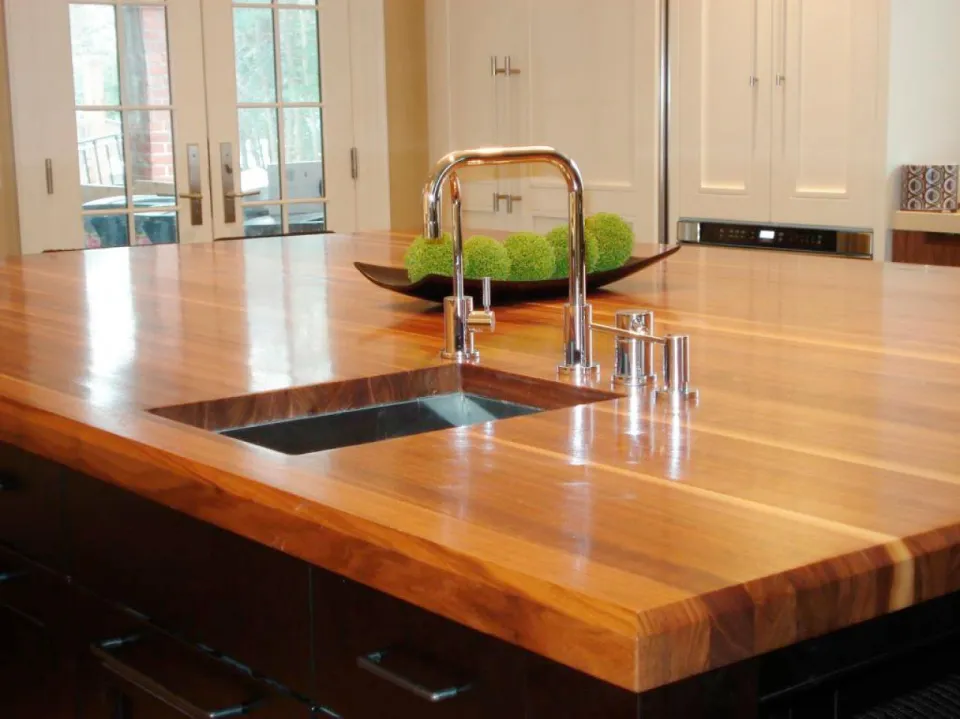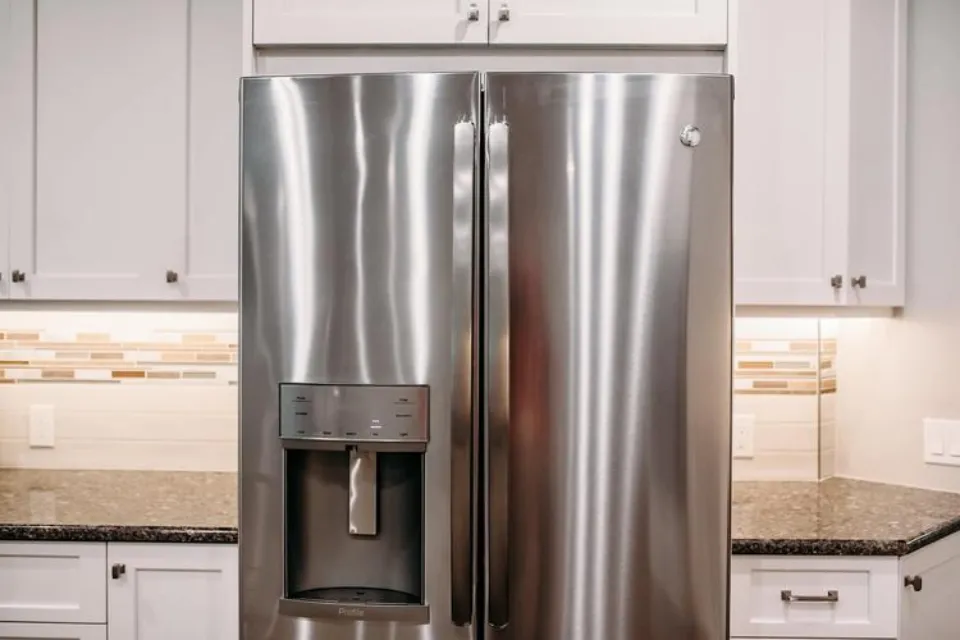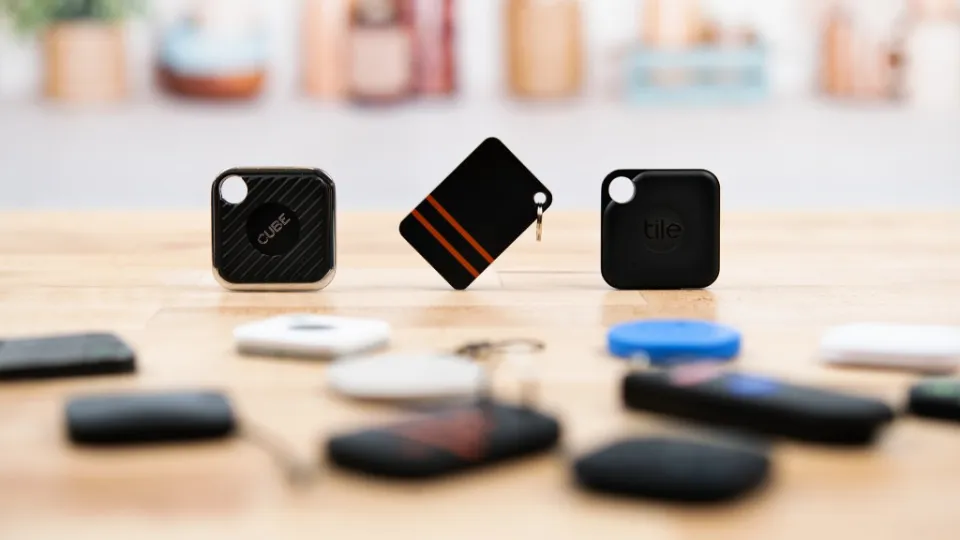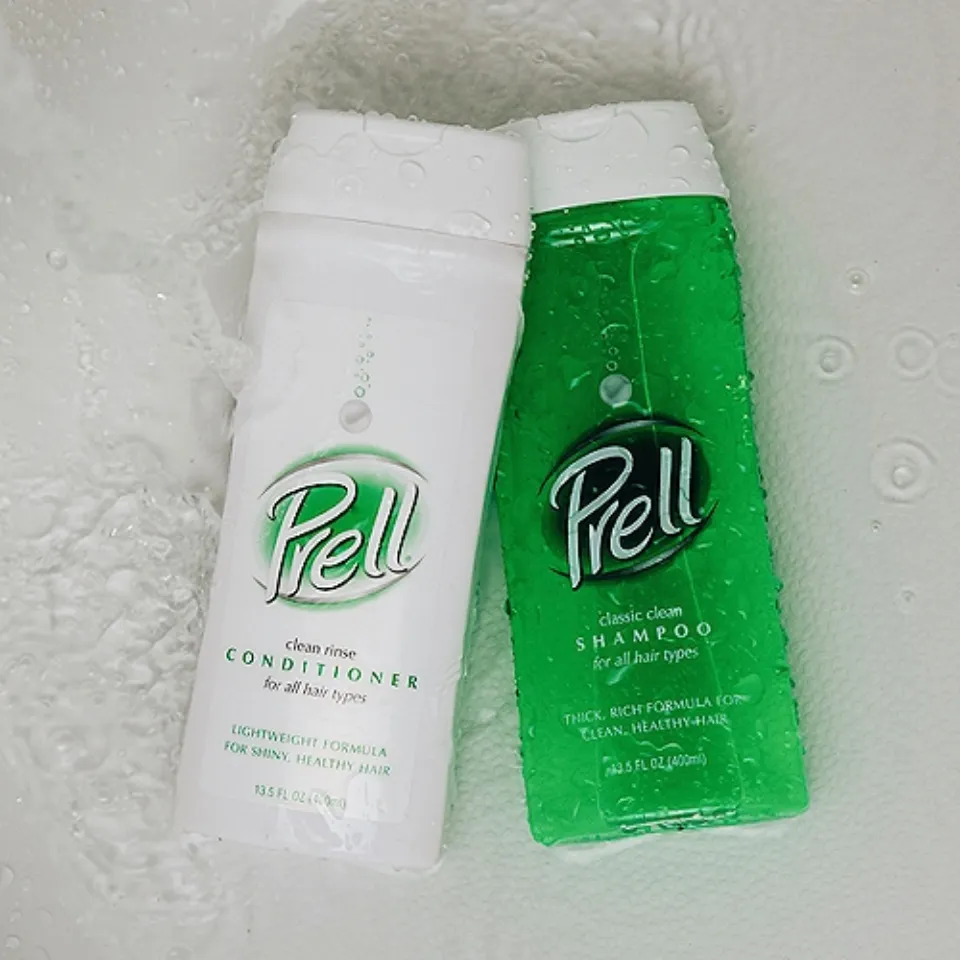Granite and butcher block are both popular choices for countertops. A kitchen’s look is made cozy and organic by butcher block.
What’s better, butcher block or granite? For a new installation or renovation, which option should you pick? The advantages and disadvantages of butcher block countertops versus granite will be covered in this article.
Pros & Cons of Butcher Block Countertops

Pros:
- Can prepare food on
- Rustic appearance
- Cost-effective
- Easier installation
- Eco-friendly
Cons:
- Not completely resistant to water
- Must regularly be treated
- Requires refinishing
- Does not resist heat
Read More: 10 Ways to Decorate Your Bathroom Counter
Pros & Cons of Granite Countertops
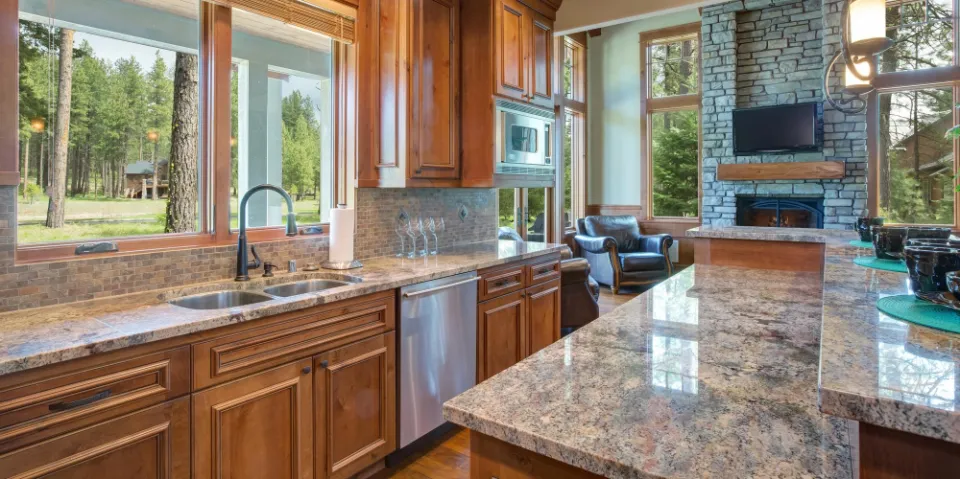
Pros:
- Beautiful appearance
- Durable, hard material
- Heat resistant
- Eco-friendly
Cons
- Cannot use knives on
- Harder installation
- More costly
- Needs to be sealed regularly
Butcher Block Vs Granite
Convenience
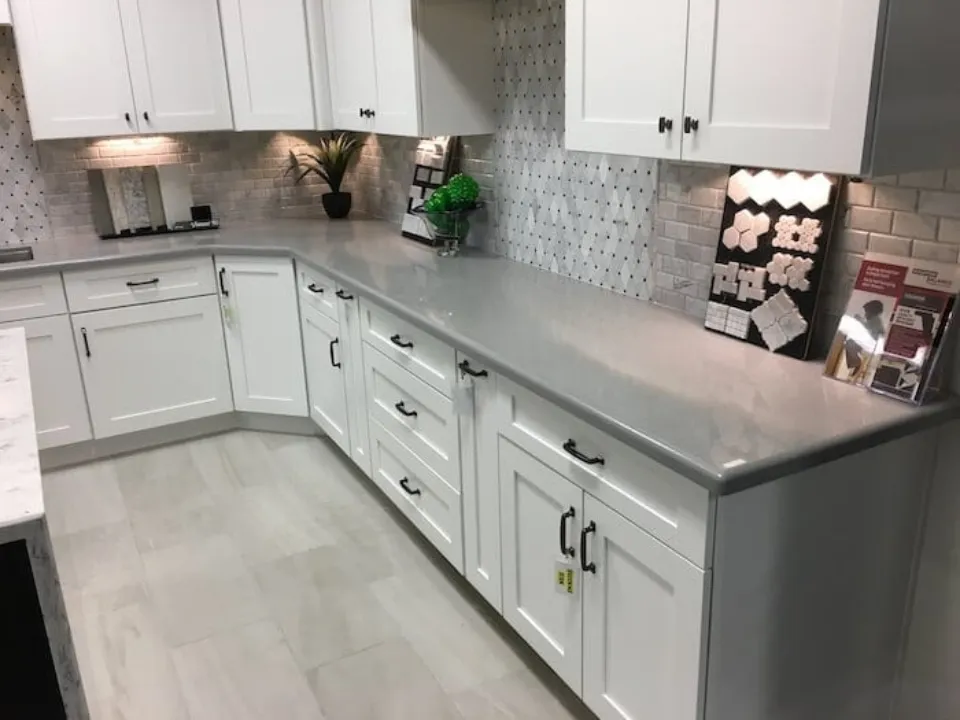
Butcher block countertops provide convenience for the homeowner because food can be prepared on the surface of the counter. No cutting board is required, and cleanup is a breeze. There is no need to move the food to a cutting board before chopping.
Food cannot be cut on a granite countertop, but it can be prepared there. Because granite can be damaged if it is scratched or penetrated with a knife, you must use a cutting board when doing this.
Appearance
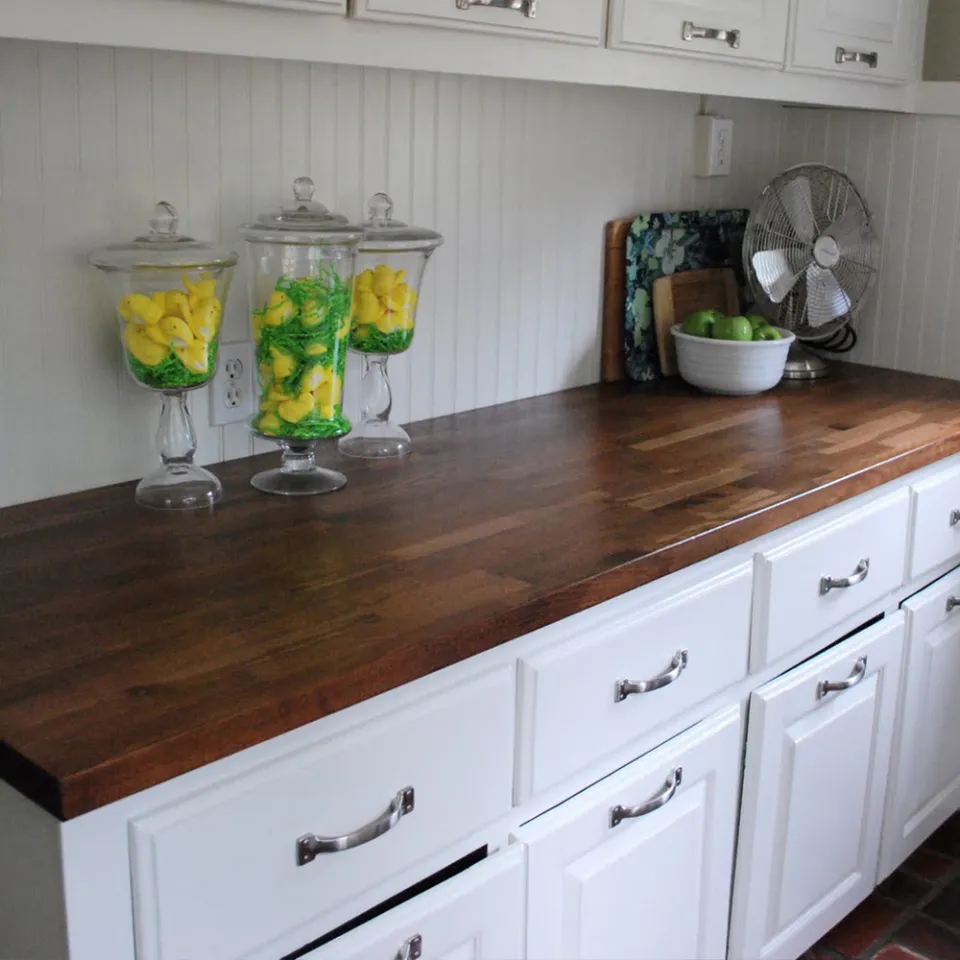
Granite countertops are mostly chosen because of their beautiful appearance. Homeowners are able to customize the appearance of their kitchen by selecting from a virtually limitless array of colors and patterns. No two stones are the same due to their mineral composition. Granite countertops are filled with a variety of colors and patterns and do not have an even appearance. Granite has distinctive variations, which is why so many homeowners pick it for their home decor.
Butcher block countertops come in several wood types such as walnut, cherry, mixed woods, maple, and birch. They offer a rustic charm that granite counters cannot match, but they may date the home if you decide to sell it.
Installation
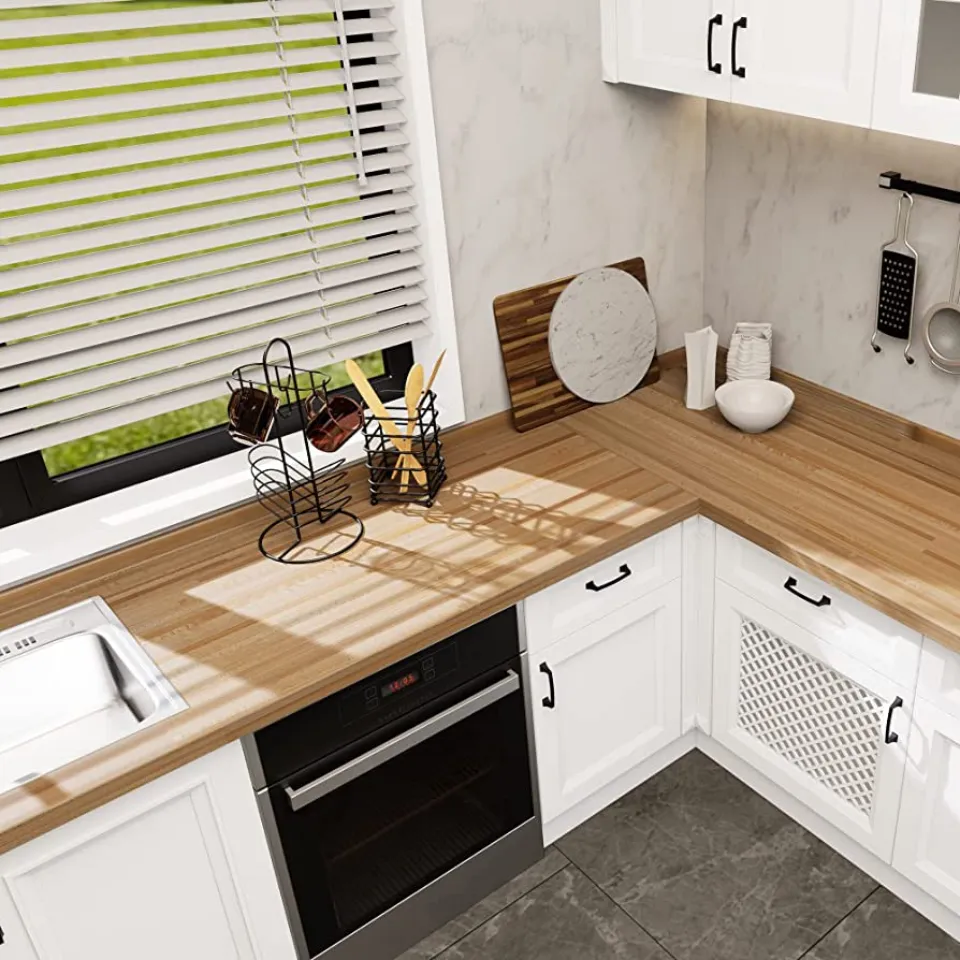
Granite countertops are harder to install because of the material and its weight. These countertops were made specifically for the kitchen they are going in. The stone has been precisely cut so that it fits the cabinets. Some cabinets might not be able to support the weight of these incredibly heavy countertops. They can take a professional an entire day to install, longer to cut and perfect, and then at least 24 hours for the epoxy to cure.
Butcher block countertops can take around the same amount of time to install, though it may take less time because they are not as heavy. As with the cabinet tops, butcher block countertops are also made to match. Installation may call for some blocking underneath to ensure the butcher block is properly supported because the bottom of the butcher block must be supported. It will be necessary to seal and treat the butcher block after installation.
Costs
For a butcher block countertop, installation costs can vary. Based on 30 square feet of countertop, expect to pay around $1,050 to $1,500 for the countertop, another $200 to $250 for labor, and $70 for any extra supplies such as the sealants. The costs can range between $1,320 and $1,820 for the entire project. The cost may vary based on the type of wood selected and the shape of the countertops.
The cost of the edging and sink installation is in addition to the price of the square foot of granite that is sold. The price of installation is typically added to the cost of the stone because it must be fabricated and installed by experts. Granite can cost between $30 and $500 a square foot installed, but most stones fall between $40-$75 a square foot. Edging is priced by the linear foot, with costs starting around $10 a foot. Sink cutouts are approximately $100 a piece. The average kitchen is around 30 square feet of the counter, with one sink cutout, for an average cost of $3,500 installed.
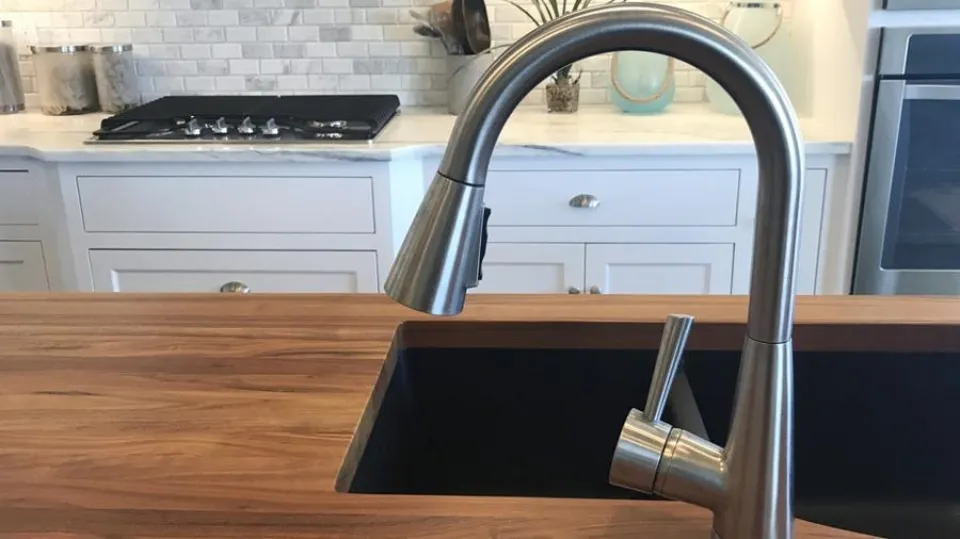
Durability
Granite does not scratch easily, and this is why many people choose it for their kitchens. Although scratch-resistant, granite cannot be completely protected from scratches, so care must be taken when using knives and other pointed objects on it.
If the granite does scratch, you will either have to accept the scratch or replace the entire slab because scratches cannot be repaired. Damage from other substances can harm granite. The surface would be scratched, for instance, if you dragged something made of granite across your granite countertop.
Granite is prone to minor surface nicks and gouges, and over time juice, oils, and other substances may leak into these cracks and get trapped, which can cause discoloration.
The surface of butcher block countertops has to be continuously treated with mineral oils or another protectant to ensure that it is not ruined by water. These countertops are susceptible to warping if water is allowed to remain on the surface for an extended period of time. Butcher block countertops, on the other hand, are resistant to scratches because the wood is strong and thick.
Maintenance
Both of these countertops require regular sealing to continue working correctly. When food is prepared on butcher block countertops, they need to be cleaned and sealed on a regular basis. Refinishing is necessary to preserve their original luster once they begin to appear worn.
Granite countertops require sealing periodically to prevent stains but not as often as wood does because the stone is porous and soaks up the finish. Drop a bead of water onto the countertop to see if your granite countertops need to be resealed. Countertops do not need to be resealed if water beads up on them, but you should have them sealed again if water soaks into them.
Heat Resistance
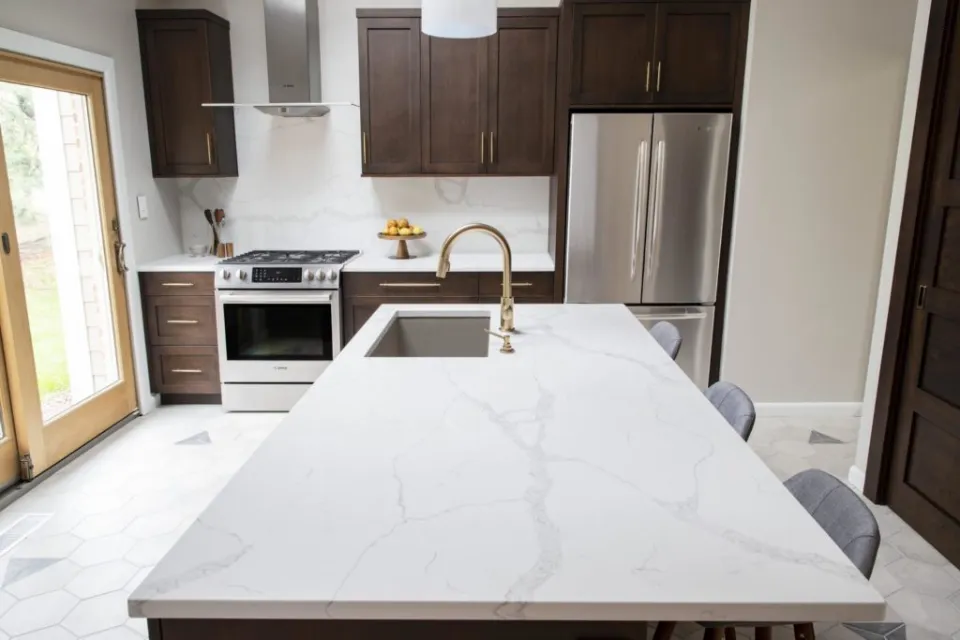
Butcher block countertops are less resistant to heat than granite because they hold the heat. With time, this could cause the surface to fracture or crack. If you want to put any hot pans or pots on the wooden surface, use a pot holder, towel, or other cover. The cool stone granite can actually cool whatever is placed on its surface.
Environmental Concerns
Wood countertops are recyclable, making them an eco-friendly choice for those who want something that is not going to cause too much damage to the environment.
Another cost-effective material that is a natural rock is granite. The rock can still be broken down and used after being sealed and buffing.
Bottom Line
With the right care, butcher block countertops can blend in with the majority of kitchen designs and last for many years. Consider butcher block as a one-time investment since it won’t become outdated. However, don’t use it as a cutting board and be aware of its limitations. It’s one of the top kitchen countertop bargains available for the price.
FAQs
Is Butcherblock Cheaper Than Granite?
In general, butcher block is less expensive than granite as a building material.
What is the Downside of Using Butcher Block Countertops?
Although softer woods might not be as prone to scratches, all wood will stain if it is not cleaned right away. However, doing so invites bacteria, mold, and even warping. Some people use butcher block as a cutting board.
Does Butcher Block Go With Granite?
A butcher block kitchen island and a white quartz or granite countertop are common pairings right now. (Also Read: Quartzite Countertops vs. Quartz Countertops)

